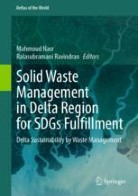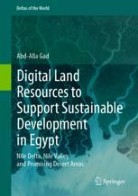
About this book series
Worldwide, over 600 million people live in deltas. Extensive human activities in deltas, their supplying rivers, and related maritime currents increase the pressure on deltas’ natural resources and habitat equilibrium, leading to degradation of the available resources and jeopardizing inhabitants’ livelihoods – and in some cases even their lives.
This book series is intended to promote a sustainable future for deltas around the globe and the communities that live in them. Accordingly, we publish studies focusing on various aspects of deltas, including hydrogeology, soil pollution, water pollution, environmental hydrology, environmental hydraulics, groundwater engineering and management, morphology, anthropology, socioeconomics, wastewater management, water resources engineering and management, agriculture, greenhouse agriculture, irrigation and drainage engineering, hydraulic structures, geophysics and geology, sedimentology, mineralogy, remote sensing and GIS studies, climate change variabilities and impacts, marine-delta interactions and sustainability, and solid waste management. The findings presented here support the SDGs and Agenda 2030 with regard to helping countries with deltas and related environments to preserve their natural resources for future generations.
The editors invite scientists, researchers and scientific communities to contribute to the series by submitting delta atlases, edited books, monographs, and high-quality conference proceedings focused on deltas around the world.
- Electronic ISSN
- 2731-8338
- Print ISSN
- 2731-832X
- Series Editor
-
- Abdelazim Negm
Book titles in this series
-

-
Geology of the Nile Deltas and Natural Resources
Challenges and Sustainable Management
- Editors:
-
- Mohamed Khalifa
- Khaled Gemail
- Copyright: 2025
Available Renditions
- Hard cover
- eBook

-
Solid Waste Management in Delta Region for SDGs Fulfillment
Delta Sustainability by Waste Management
- Editors:
-
- Mahmoud Nasr
- Balasubramani Ravindran
- Copyright: 2024
Available Renditions
- Hard cover
- Soft cover
- eBook

-
Digital Land Resources to Support Sustainable Development in Egypt
Nile Delta, Nile Valley and Promising Desert Areas
- Authors:
-
- Abd-Alla Gad
- Copyright: 2023
Available Renditions
- Hard cover
- Soft cover
- eBook


